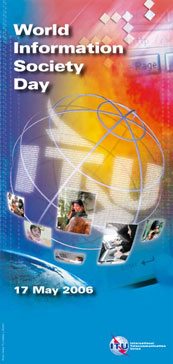 |
Yesterday, the UN Secretary General Kofi Annan issued a statement on the first World Information Society Day, May 17th. His short speech centered on the importance of "cyber-security":
In an increasingly interconnected and networked world, it has become critically important to safeguard our vital systems and infrastructures against attack by cybercriminals, while instilling confidence in online transactions in order to promote trade, commerce, banking, telemedicine, e-government and a host of other e-applications. As this depends on the security practices of each and every networked country, business and citizen, we need to develop a global culture of cybersecurity.
I therefore urge all Member States and stakeholders to help increase global awareness of cybersecurity, and to develop an international network of initiatives and ICT-based countermeasures to enhance security and build trust in the use of information and communication technologies. This is essential for the continued growth and development of our economies, and especially important for developing countries.
His emphasis on "cyber-security" is perhaps not surprising. However it would have been better in my view if he had taken the opportunity to all stress the importance of ICTs to enhance human security. For example:
- the important work that the Swiss and Bill Drake did developing the ICTs for Peace web portal,
- initiatives to create computer games that promote conflict resolution and cooperation like "Peacemaker" that simulates the Israeli / Palestinian conflict,
- the virtual "Darfur camp" in the online 3D universe of Second Life that raises awareness of the Sudanese conflict and links you to groups trying to make a difference there,
- not to mention all the ways that ICTs are used to coordinate humanitarian assistance, peacekeeping operations, and early-warning systems.
Instead the SG talked about e-commerce and "cyber-criminals." That’s probably the safest theme he could have chosen for the first year of the Information Society Day. But it would be nice if we moved on from these old state-centric views on security toward solutions that really effect people’s lives on the ground.